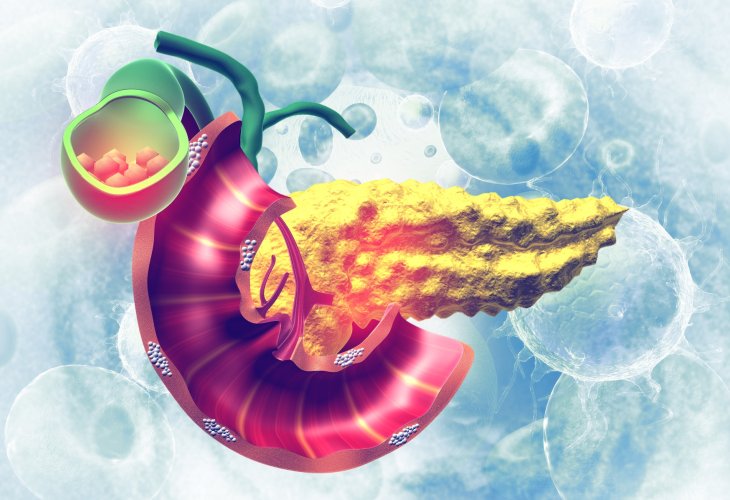Diabetes: When the Pancreas Needs a Helping Hand
Insulin resistance often starts long before diabetes is diagnosed. Blood sugar levels may appear normal, but insulin secretion is increased.
 (Photo: shutterstock)
(Photo: shutterstock)Diabetes develops when blood sugar levels rise, and the insulin produced by the pancreas fails to transfer sugar into the body's cells, or when the amount of insulin secreted by the pancreas is normal, but it cannot transport sugar to the target organs— a condition known as "insulin resistance."
Insulin resistance often begins well before diabetes is diagnosed. Blood sugar levels in tests might appear normal, but insulin secretion is increased—placing the pancreas under strain and affecting its performance.
What causes the pancreas to malfunction?
A deficiency in vitamin D, excess weight, lack of physical activity, high blood pressure, and genetics. While genetics play a role in sugar balance, environmental factors, particularly diet, are major contributors to the development of the disease.
Diabetes, more than any other illness, is heavily influenced by Western culture and lifestyle. Sugar is one of the biggest hidden threats in our diet. Nearly every pre-packaged food we purchase contains sugar, and often sugar is added to salty foods as well, to balance flavors.
Many of us consume too many carbohydrates daily, which break down into sugar and burden the pancreas, making it work harder than it can handle, leading to wear and tear.
As we age, the function of the pancreas decreases naturally. Consuming large amounts of carbohydrates accelerates the aging process and increases damage to the pancreas's ability to produce insulin.
A decrease in movement and physical activity also contributes to the development of diabetes. The more fat cells in the body, the greater the burden on the pancreas, and the harder it becomes to regulate blood sugar levels.
Maintain a diet rich in dietary fibers found in vegetables, nuts, seeds, and whole grains. Soluble dietary fibers help balance blood sugar levels. They are found in oats, dry beans, chickpeas, and apples.
Incorporate ground flax seeds into your daily menu, whether in salads or smoothies. Eat proteins at every meal. Proteins help stabilize blood sugar levels. Eat plenty of salads with leafy vegetables like lettuce, celery, etc.
There is a connection between the mineral chromium and sugar balance. Chromium is found in brewer's yeast, wheat germ, whole grains, onions, and garlic.
Avoid sugary and carbonated drinks. Wheat raises glucose levels, and dairy products contain casein and lactose that can weaken the pancreas.
Emphasize home-cooked meals, and reduce the consumption of store-bought foods.
Zohara Sharvit is a naturopathN.Dand an iridology expert with extensive experience in treatment, consultation, and workshop facilitation. To book a free workshop, call073-2221290

